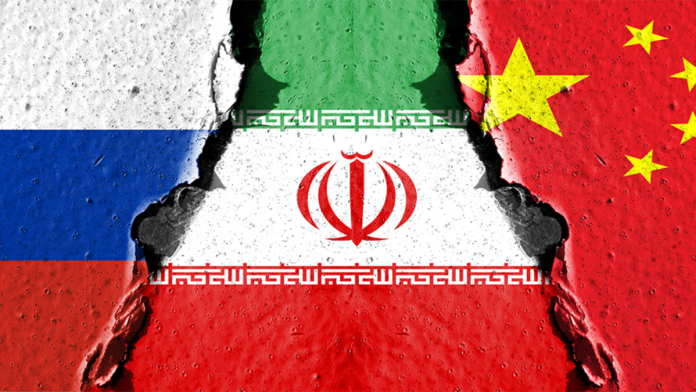China and Russia have joined Iran in rejecting a move by three European countries to restore United Nations sanctions on Tehran. The sanctions were originally eased under a 2015 nuclear deal, which aimed to limit Iran’s nuclear activities in exchange for relief from economic restrictions.
The European powers, often called the E3 — Britain, France, and Germany — triggered what is known as the “snapback mechanism” last week. This mechanism allows UN sanctions to be reimposed if Iran is judged to be violating the deal. The Europeans argue that Tehran has gone beyond the limits agreed in 2015, especially in producing uranium.
The snapback mechanism was created as a safeguard in the deal. It lets sanctions return automatically if Iran is seen as breaking its commitments, without needing a new UN vote.
In response, China, Russia, and Iran issued a joint letter rejecting the European step. The document, signed by the foreign ministers of the three countries, described the move as “legally and procedurally flawed.” Foreign Minister Abbas Araqchi, who shared the letter on X, said the European decision “abuses the authority and functions of the UN Security Council.”
European ministers to trigger snapback sanctions against Iran after failed talks
History of the 2015 nuclear agreement
The 2015 nuclear deal, officially called the Joint Comprehensive Plan of Action, was signed between Iran and world powers. These included China, Russia, Britain, France, Germany, and the United States. Under the agreement, Tehran agreed to restrict its nuclear program in return for relief from heavy international sanctions.
The agreement was seen as a major step to prevent the development of nuclear weapons in the region. But in 2018, then U.S. President Donald Trump withdrew from the deal. The American government at that time argued that the agreement was insufficient to limit Iran’s nuclear ambitions. Following the U.S. withdrawal, the country gradually stopped complying with many of the restrictions placed on its nuclear activities.
Iran has said its actions are justified because the U.S. broke the agreement first. As a result, it has increased its uranium production and other nuclear activities. Uranium enrichment can be used for peaceful energy, but at higher levels it can also serve military purposes. This is why enrichment levels remain a central concern for other nations.
The E3 countries accuse Tehran of failing to respect its commitments, which is why they have now sought to trigger the snapback mechanism.
Talks stall amid tensions
In recent months, discussions have taken place between Iran and the E3 in an effort to create a new nuclear agreement. These talks have faced many difficulties. Reports suggest that despite several meetings in Geneva, the sides could not agree on the key points needed to move forward.
🌐 US targets Greek shipping network linked to Iranian crude exports
Geneva was chosen because of its long history as a neutral site for international negotiations. Even so, the latest sessions did not show enough readiness from Tehran for a new agreement, according to the Europeans.
The situation became more strained after reports of attacks on nuclear facilities earlier this summer, carried out by Israel with support from the United States. Following those incidents, Tehran expanded its nuclear activity further, while European nations pushed harder for sanctions.
The joint letter from China, Russia, and Iran was signed in the Chinese city of Tianjin. Araqchi said the statement reflected a “firm position” against the European attempt to restore sanctions. He also called the move “politically destructive” and lacking a proper legal foundation.
The original 2015 agreement is due to expire in October this year. When the deal expires, the limits on Iran’s nuclear program would no longer apply unless a new arrangement replaces it. If the snapback mechanism is confirmed, sanctions that were lifted under the deal would return automatically. These sanctions would have wide-ranging effects on Iran’s economy, especially its ability to trade internationally.
